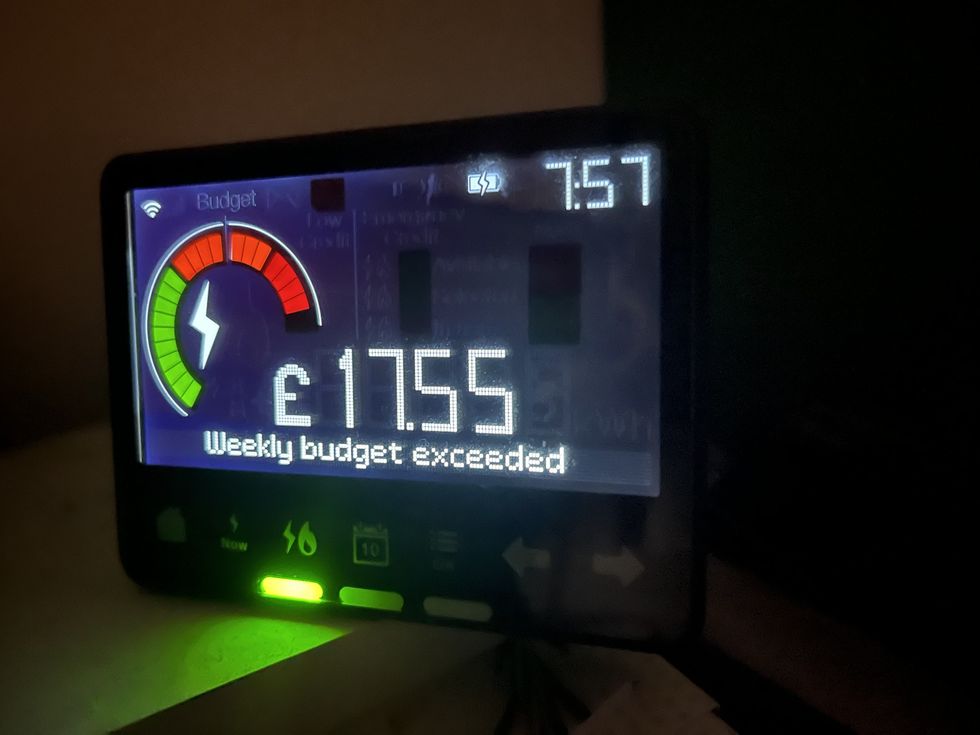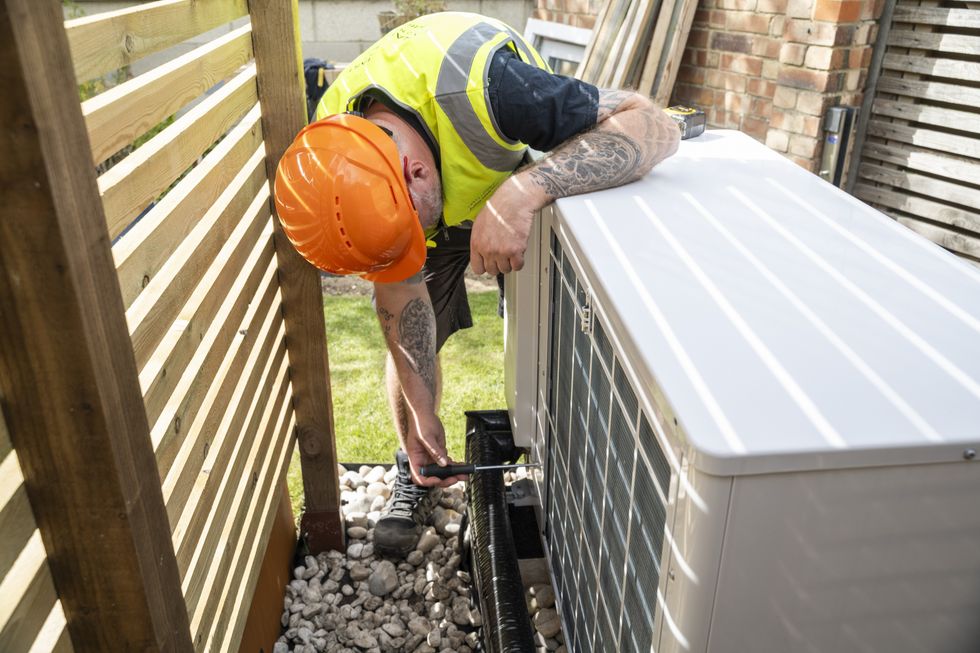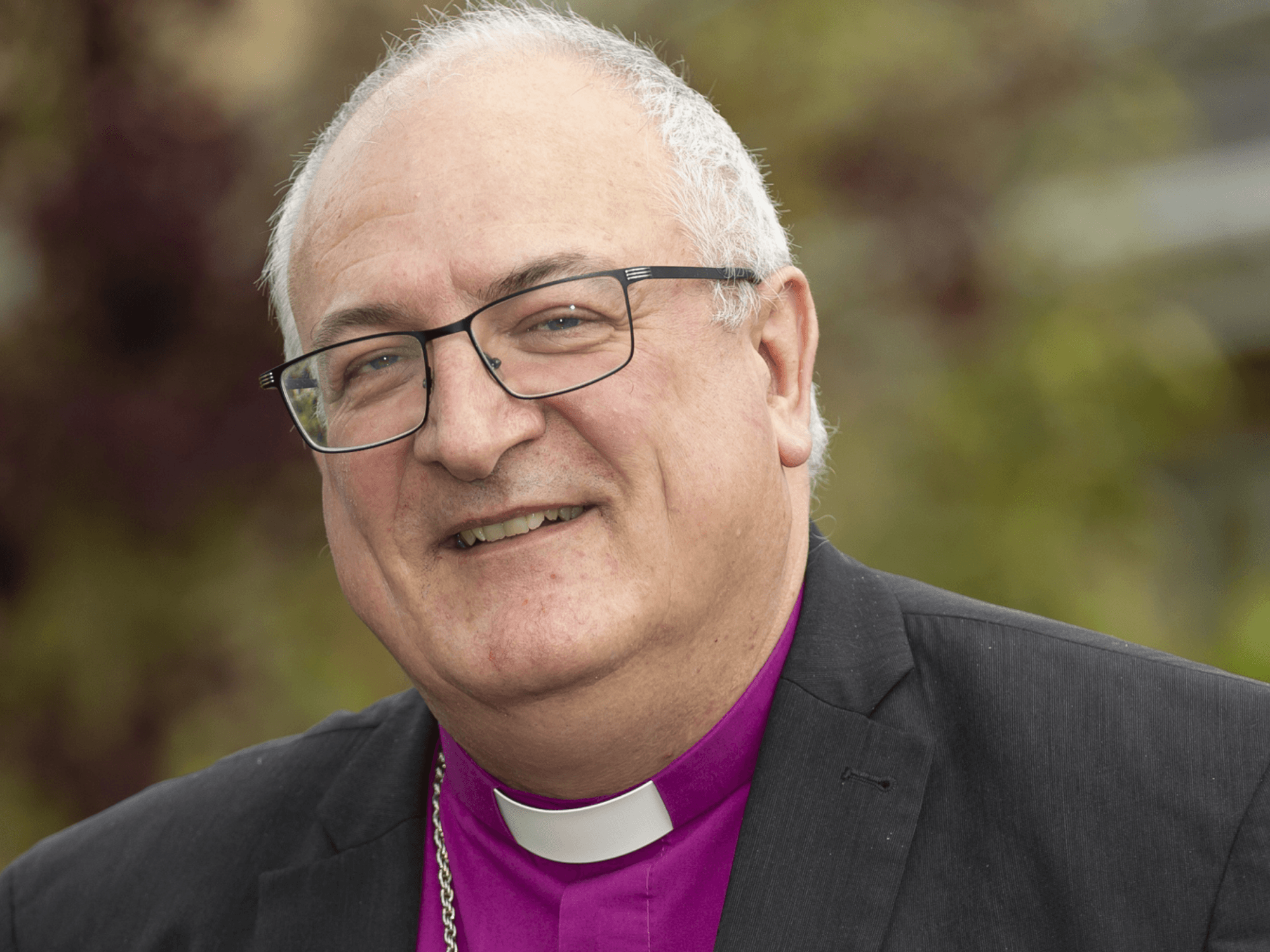Pensioners slash heating bill by £300 after installing data centre in garden shed

GB News

Essex residents cut costs from £375 to £40 after becoming first in Britain to heat their home using data-processing technology
Don't Miss
Most Read
Latest
An Essex couple have slashed their monthly heating costs from £375 to as little as £40 after becoming the first household in Britain to warm their home using a data centre installed in their garden shed.
Terrence Bridges and his wife Lesley, who live near Braintree, replaced their gas boiler with a new HeatHub system designed to capture warmth generated by more than five hundred mini-computers carrying out digital processing.
The innovative unit, created by Thermify under UK Power Networks' Shield initiative, collects the heat produced by these computers using oil and transfers it directly into the couple's hot water and heating system.
The scheme aims to help low-income households transition to net zero by trialling new solutions that cut bills and provide clean energy.
Mr Bridges, 76, said keeping their two-bedroom bungalow warm is essential because his 75-year-old wife suffers from spinal stenosis and experiences severe pain when temperatures fall.
"It truly is brilliant. I'm over the moon that we got picked to trial this out.
"You can't fault the heating system, it is a one hundred per cent improvement on what we had before."
Mrs Bridges added: "You don't need to go to a sauna after coming here."

A couple in Essex have dropped their heating bill down to £40 following being a part of a trial they feel was a great success
| GETTYThese additions have driven their energy bills even lower.
Despite keeping the heating "fairly high" for comfort, their total monthly costs now fall between £40 and £60.
Mr Bridges said: "I think it's fantastic because it's eco-friendly. We're not burning any gases, so it's green, it's environmentally friendly."
LATEST DEVELOPMENTS:
The cream-painted brick shed at the end of their garden contains the HeatHub, an inverter for the solar panels, a battery to store electricity and a heat battery which links into their hot water system.
Travis Theune, Thermify's co-founder and chief executive, said the unit at the Bridges' property will eventually become part of a "remote and distributed" data centre made up of multiple HeatHubs working together to process information for clients.
The system is not designed to handle heavy artificial intelligence workloads, but can run apps or process large volumes of data at lower intensity.
Each module contains up to fifty-six Raspberry Pi computers, each roughly the size of a matchbox.
Mr Theune said: "Finding a way to do both was a hard problem," referring to the challenge of producing heat that is clean and affordable while also running data processing tasks.

Mr Bridges says the method is environmentally friendly
| GETTYThe pilot programme works by charging clients for processing their data through the HeatHubs.
Because those clients cover the electricity used to power the computers, households receive what Thermify calls "clean, green heat at a low-to-no price point".
The Bridges' landlord, social housing provider Eastlight Community Homes, is also part of the Shield project.
Daniel Greenwood, Eastlight's head of asset management, said the organisation hopes to expand the scheme after early positive results.
He said: "We've seen great results for the current installation, and although this is the first of its kind, we're looking to roll that out more broadly."
He said the next phase could see HeatHubs installed in 50 homes.
Data centres supply essential digital services but currently use around two and a half per cent of Britain's electricity.
That figure is expected to rise by up to four times by September 2030 as demand increases.
Thermify is not the only firm exploring how to reuse waste heat from digital infrastructure.

A Devon pool is heated by a washing‑machine‑sized digital boiler, while Cambridgeshire plans link a solar data centre to district heating
| GETTYA swimming pool in Devon is being warmed by a washing-machine-sized "digital boiler", while plans for the Melbourn Energy Superloop in south Cambridgeshire would link a solar-powered data centre with a district heating network.
Milton Keynes University Hospital is also due to benefit from a £95million plan to capture heat generated by a new data centre and channel it into hospital facilities.
Meanwhile, at a separate site near Peterborough, Mike Richardson's DSM facility uses a five-hundred-cubic-metre artificial lake to cool its servers.
Fish, including koi carp and tench, help keep the cooling system clean by consuming algae inside the water.
Our Standards: The GB News Editorial Charter










